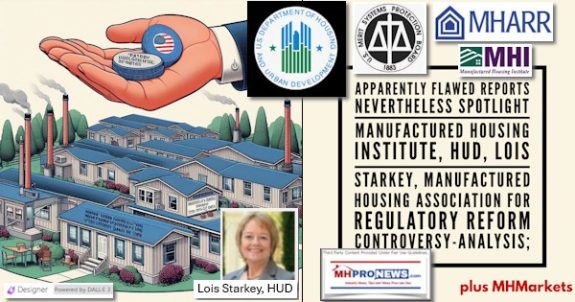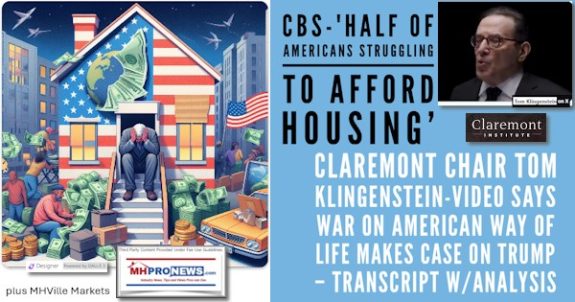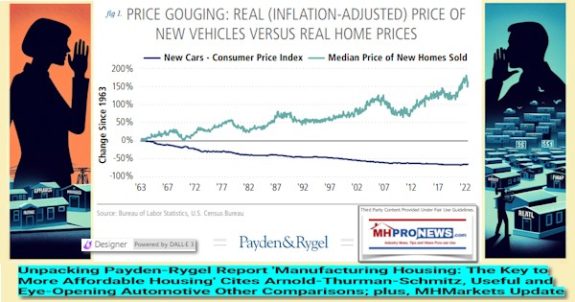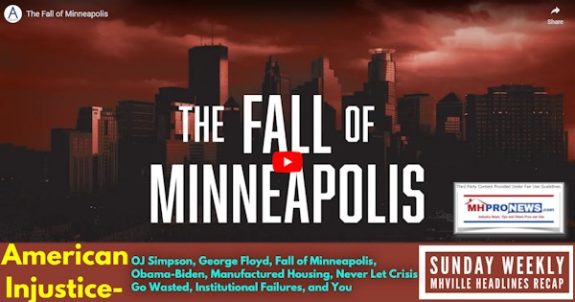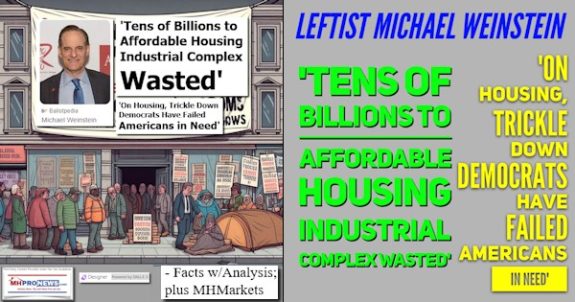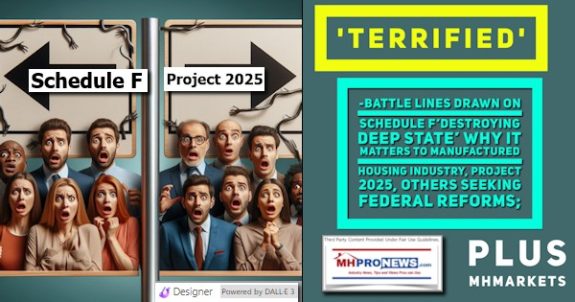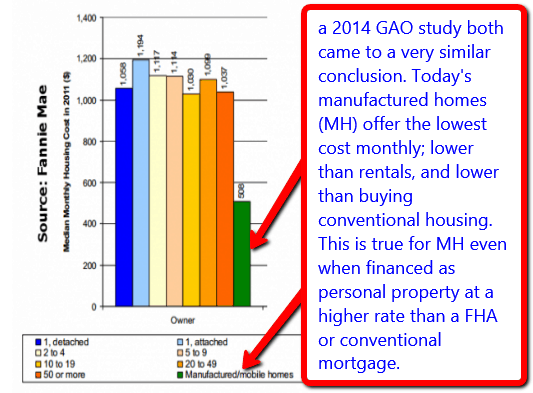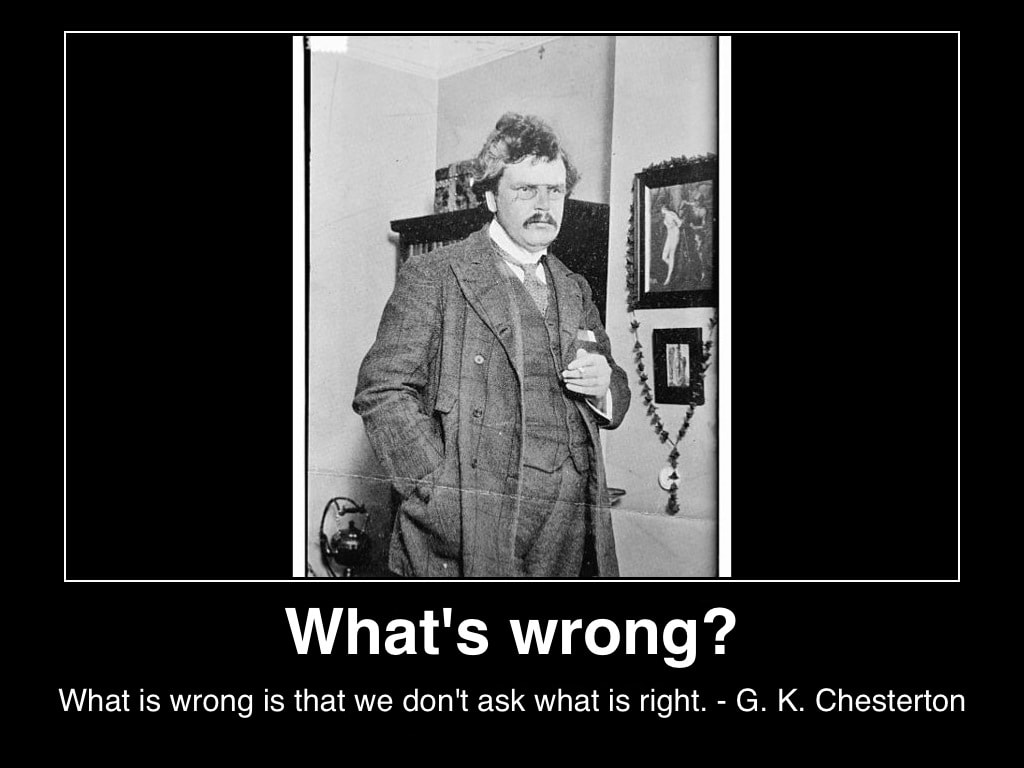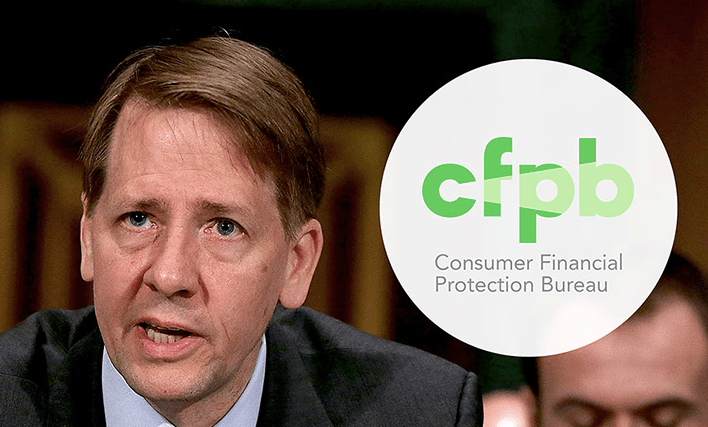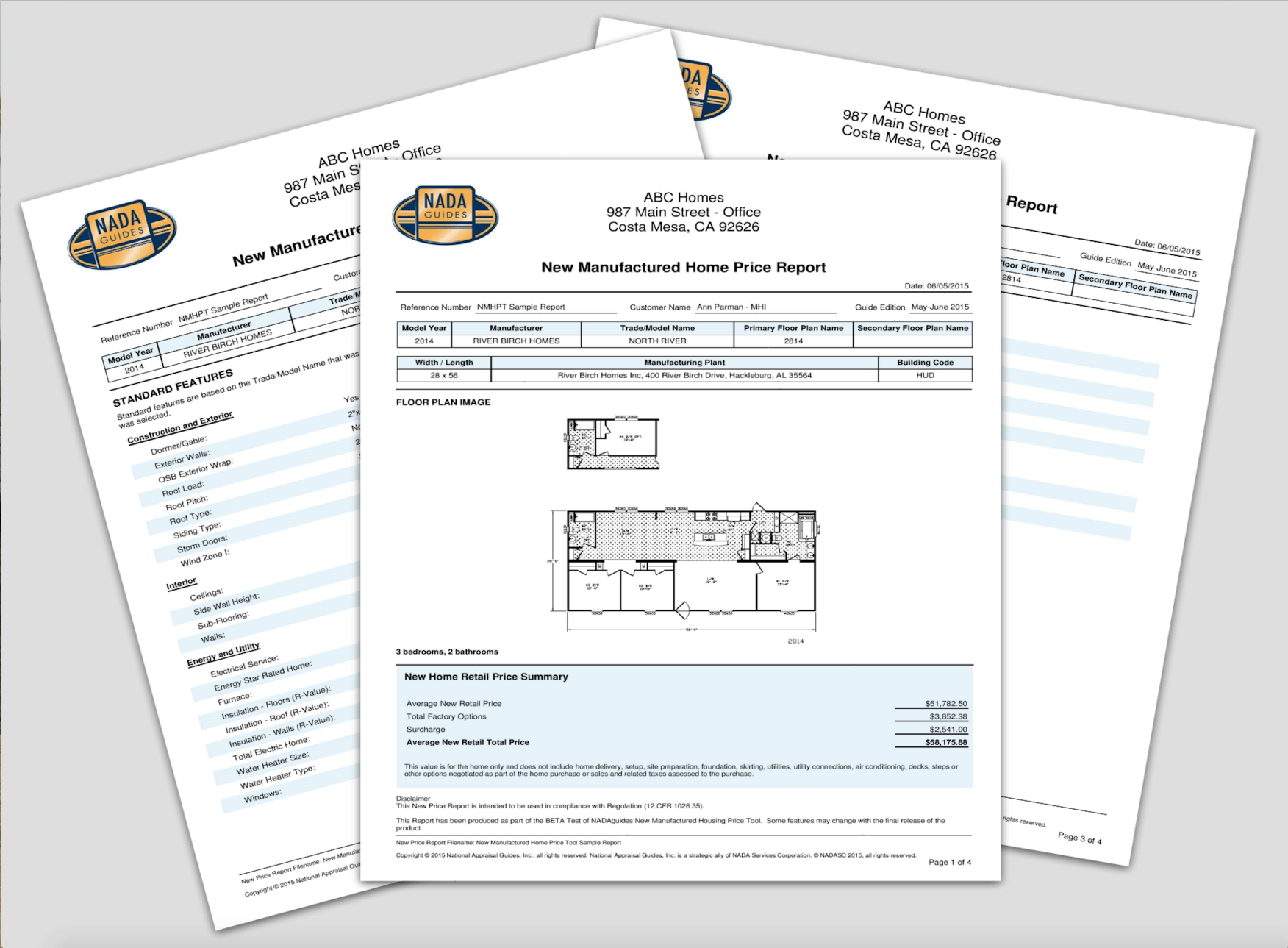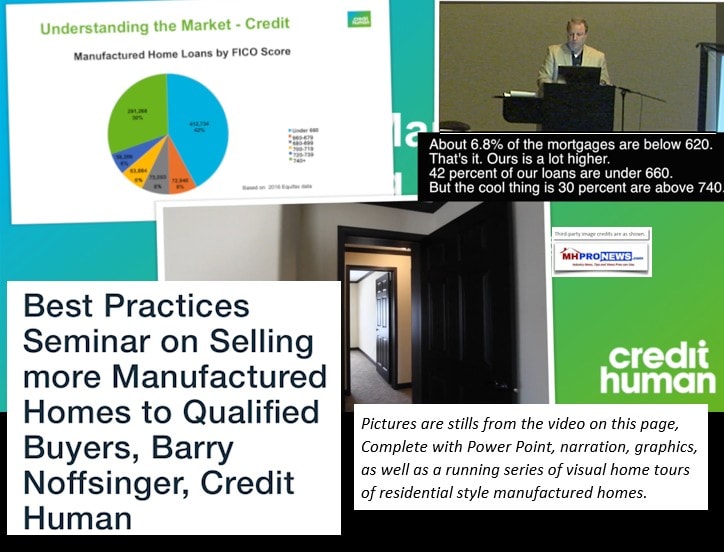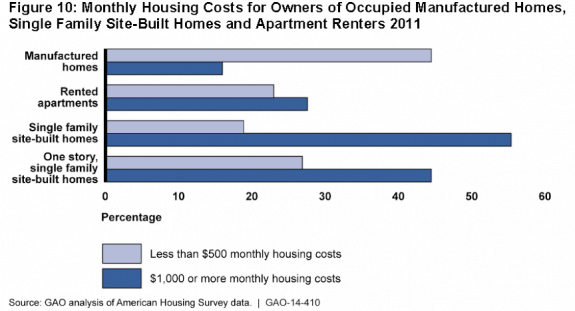
While some say federal preemption should keep fire sprinkler systems from being mandated in manufactured housing, interpretations by HUD conclude federal preemption does not cover fire sprinklers. Meanwhile several of the states where the IRC has been adopted have received a perhaps temporary reprieve from the sprinkler requirement.
In a conversation with MHMSM.com Publisher Tony Kovach, Danny Ghorbani and Mark Weiss at the Manufactured Housing Association for Regulatory Reform (MHARR) expressed the opinion that language referring to the “broad and liberal” interpretation of preemption in the Manufactured Housing Improvement Act of 2000 would include preemption of fire sprinkler requirements. HUD however, as they point out, has been on both sides of the issue.
Ghorbani and Weiss referred to a 1989 case in Oklahoma where HUD wrote a letter to Oklahoma City expressing that they did not have a right to set a standard on fire sprinklers because of preemption. However HUD in a Massachusetts case in the 1990s took the opposite view. To clarify such issues, the MHIA of 2000 “enhanced preemption.”
In a bulletin from MHARR, the position that federal preemption exempts manufactured housing from the requirements was expressed. In the Washington Update titled Sprinkler Mish-Mash Designed to Mislead Industry, the group stated that the sprinkler issue was “another example of the type of ill-advised industry ‘compromise’ on key issues – while most grassroots industry members are kept in the dark or provided misleading information – that has devastated the industry in Washington, D.C.”
Supporters of an across-the-board residential fire sprinkler mandate, largely frustrated so far in their efforts to have the fire sprinkler requirement of the latest International Residential Code (IRC) adopted at the state and local level, who have long seen the HUD Code industry as easy prey due to its weakness in Washington, D.C., continue to target manufactured housing for a sprinkler standard that could be imposed nationwide by HUD in one stroke of the pen and used, ultimately, as a foot in the door, to pressure states and local jurisdictions to mandate sprinklers for all housing.
The HUD web site explains it this way:
Fire sprinkler systems are being increasingly required by state and local governments for all new single family homes. Though HUD always had general fire safety standards, HUD had no standard for mechanical fire suppression. HUD has long held that state and local sprinkler requirements are, therefore, not preempted by the general fire safety standards. This left state and local government free to dictate all elements of the sprinkler system that a manufactured home must have in order to be sited in the jurisdiction. The fire sprinklers standard that HUD proposed in 2010 would change all of that. During the Manufactured Housing Consensus Committee (MHCC) review process, and then again in public during the comment period for the proposed rule, industry experts had the chance to work with HUD to develop, in this case, a cost effective sprinkler system that can be installed during the production process. And this standard would apply only in those jurisdictions that require fire sprinklers. This is an important point because there are concerns that HUD intends to require fire sprinklers in all manufactured homes. That is simply not the case.
MHARR’s Ghorbani thinks it is a mistake to “cave in” on preemption, explaining in part that the powerful National Association of Home Builders (NAHB) is actually on our side in this issue regarding fire sprinklers.
From California, one of the states that has adopted the IRC, Jess Maxcy at the California Manufactured Housing Institute (CMHI) explains that currently 149 jurisdictions require sprinkler systems and their manufacturers are already delivering homes with sprinklers. The remaining of approximately 397 jurisdictions will have the option of requiring them when the IRC goes into effect January 1, 2011.
The industry had been concerned that sprinklers would be required unilaterally, but CMHI was successful at making the case that older mobile home parks don’t have the infrastructure necessary for sprinklers.
“The decision was made to withdraw the requirement for manufactured homes,” Maxcy says, explaining that the state already has a preemptive fire sprinkler system that can be put into play if a local jurisdiction adopts an ordinance requiring fire sprinklers.
“While we’ve got this reprieve, it does not take away the ability of the local jurisdictions to require fire sprinklers, it’s just not going to all happen on January 1,” Maxcy says. “It gives us a little more time to get ready.”
In Pennsylvania sprinklers will not be required in manufactured homes without exceptions. It is noteworthy that the Pennsylvania Department of Labor and Industry, which regulates the uniform construction code, has come to the conclusion that manufactured homes are exempt from sprinkler requirements.
Pennsylvania Manufactured Housing Association executive vice president Mary Gaiski explains, however, that the basements of manufactured homes set on foundations will be required to have sprinkler systems.
Gaiski stresses that the department of Labor and Industry decision was not based on federal preemption because HUD has opined that sprinklers are not covered by preemption.
Thayer Long, executive vice president at the Manufactured Housing Institute (MHI), questions whether it would be a good place for the industry to be the only type of housing not required to have sprinkler systems.
“We don’t want to expose ourselves to being the only form of single-family housing that doesn’t have sprinklers-there’s some inherent risk in that,” Long says. “To some extent, every state will be or has been dealing with this requirement.”
Still, Long emphasizes his organization’s position is that fire sprinklers should continue to be a consumer choice.
“It shouldn’t be a mandate and our state associations are working with other organizations to fight the adoption of sprinkler requirements at the local level,” Long says.
In the case where states or municipalities do require sprinklers, Long says efforts are underway to put a preemptive sprinkler provision into the HUD code.
Then, he says, “when a jurisdiction does adopt it, and as long as it applies to all single-family homes, there is a solution that manufacturers can use and it does then become preemptive.”
Currently a draft of language to be incorporated into the HUD code is being prepared and will be presented to the Manufactured Housing Consensus Committee as a code change.
“That’s the next step in getting it incorporated,” Long says.
The language concerning preemption in MHIA 2000 reads as follow:
(2) in subsection (d), by adding at the end the following: “Federal preemption under this subsection shall be broadly and liberally construed to ensure that disparate State or local requirements or standards do not affect the uniformity and comprehensiveness of the standards promulgated under this section nor the Federal superintendence of the manufactured housing industry as established by this title. Subject to section 605, there is reserved to each State the right to establish standards for the stabilizing and support systems of manufactured homes sited within that State, and for the foundations on which manufactured homes sited within that State are installed, and the right to enforce compliance with such standards, except that such standards shall be consistent with the purposes of this title and shall be consistent with the design of the manufacturer.”
“This may seem to be a complex issue, with mixed messages, but let’s go back to the basics,” said Manufactured Home Marketing Sales Management (www.MHMSM.com) publisher Tony Kovach. “The HUD Code as it stands is:
0. A performance based code, not a prescriptive building code. 1. Is federally Preemptive; the states and local jurisdictions can have installation requirements, within certain parameters, but can’t supersede HUD’s federal construction and safety standards. You can see these two points in the excerpt provided above from the law. 2. This is to be “broadly and liberally construed” regarding local requirements and standards. We should have a highlighter out and show that to state and local officials on a routine basis.
“It seems common sense and clear that fire sprinklers are a construction and safety standard!
“It is to the Industry’s tremendous advantage that we have these aspects to the HUD Code for Manufactured Housing. HUD’s Teresa Payne assured the Industry that preemption would be protected. We should count on that and expect HUD to do just that, because that is what the law that Congress gave us requires. Why should we let slip away an advantage that our Industry has that been given us as a matter of federal law?” # #






